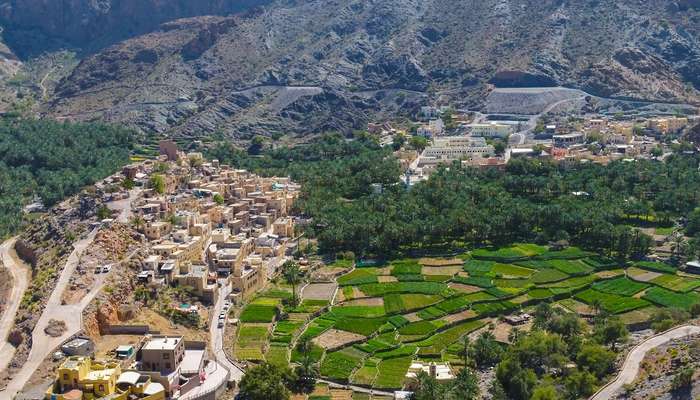
A’Rustaq: Nestled amid lush oases and towering mountain peaks, Bald Sayt village in the Wilayat of A’Rustaq in South Al Batinah Governorate, has emerged as a premier destination for adventure tourism.
The village captivates international thrill-seekers due to its location along the famed Wadi (valley) of Bani Auf trail, known as “Snake Canyon” for its challenging terrain. It also serves as a gateway to an ancient mountain pathway officially recognized among Oman’s mountain trails, linking Bald Sayt to the Wilayat of Al Hamra.
Dr. Al-Mu’tasim Nasser Al Hilali, Director of Heritage and Tourism in South Al Batinah, told Oman News Agency (ONA) that the village boasts five tourist facilities with 42 rooms, attracting numerous daily visitors.
Its natural and heritage diversity, coupled with unique experiences, makes it particularly popular in winter (September to April) when temperatures drop and tourism peaks. Summer tourism (May to August) also thrives due to the village’s moderate climate.
Bald Sayt lies along an active tourist route promoted by travel companies for its historical landmarks, natural springs, and traditional markets. T
These attractions complement the adventure offerings of Wadi Bani Auf and extend toward Al Hamra in A’Dakhiliyah Governorate.
The canyon, a dramatic rock fissure in Bani Auf Valley, earns its name from its serpentine twists.
Adventurers can tackle three rappelling points—the highest at 23 meters—and navigate 13 natural water pools across a 3-kilometre stretch.
A shorter trail, “Baseer Al-Zama,” features a 4-meter rappel and opportunities for swimming and cliff-jumping amid striking rock formations.
Bald Sayt’s origins are deeply rooted in history, with landmarks like the fortified “Al-Manie Tower,” the ancient “Al-Madiq Mosque,” and the 400-year-old “Great Falaj” irrigation system, now a UNESCO-listed architectural heritage site.
The village also preserves intangible heritage, including traditional crafts like basket-weaving, rope-making, and palm-frond handicrafts.
Funded by the UN’s Food and Agriculture Organization (FAO) in collaboration with the Ministry of Agriculture, Fisheries, and Water Resources and Al Zubair Institution, the “Agri-Ecotourism in Aflaj Systems” project aims to revitalise rural areas. As Oman’s first such initiative, it seeks to bolster economic sustainability and local community development.